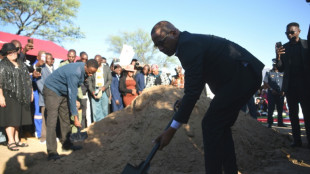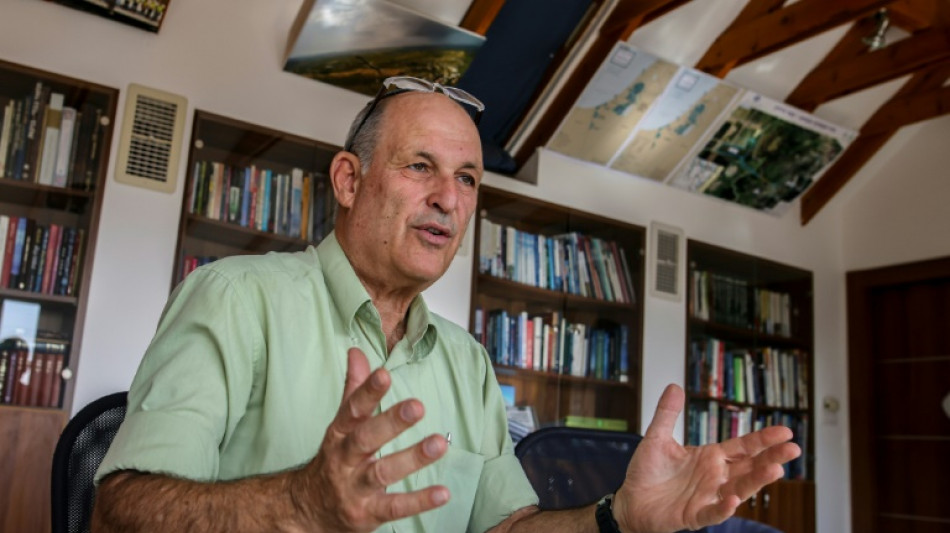
-
 Guirassy extends streak as Dortmund cruise past 10-man Heidenheim
Guirassy extends streak as Dortmund cruise past 10-man Heidenheim
-
Vingegaard touching Vuelta glory with stage 20 triumph as protests continue
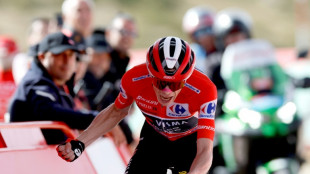
-
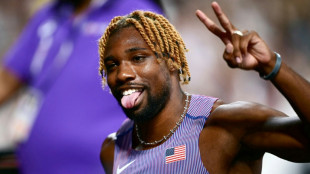 'World's fastest anime fan' Lyles in element at Tokyo worlds
'World's fastest anime fan' Lyles in element at Tokyo worlds
-
De Minaur's Australia trail as Germany, Argentina into Davis Cup finals

-
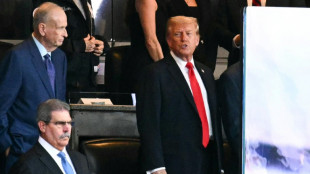 Airstrikes, drones, tariffs: being US friend not what it used to be
Airstrikes, drones, tariffs: being US friend not what it used to be
-
Cyclists swerve protest group in road during Vuelta stage 20
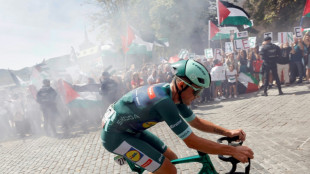
-
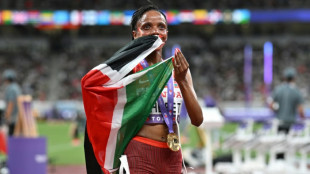 A Tokyo full house revels in Chebet and sprinters at world athletics champs
A Tokyo full house revels in Chebet and sprinters at world athletics champs
-
Holders New Zealand fight past South Africa into Women's Rugby World Cup semis
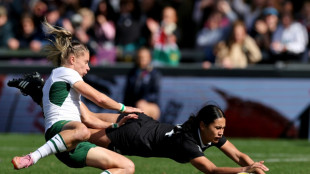
-
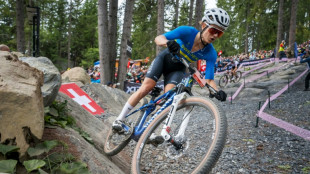 Ex-Olympic champion Rissveds overcomes depression to win world mountain bike gold
Ex-Olympic champion Rissveds overcomes depression to win world mountain bike gold
-
Kenya's Chebet wins 10,000m gold, suggests no tilt at world double
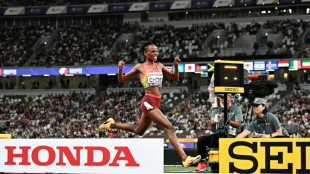
-
 Arsenal ruin Postecoglou's Forest debut as Zubimendi bags brace
Arsenal ruin Postecoglou's Forest debut as Zubimendi bags brace
-
Shot put legend Crouser wins third successive world title
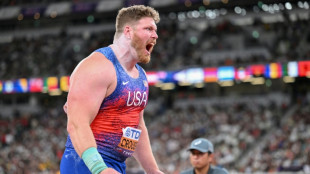
-
 Bezzecchi wins San Marino MotoGP sprint as Marc Marquez crashes out
Bezzecchi wins San Marino MotoGP sprint as Marc Marquez crashes out
-
Kenya's Chebet wins 10,000m gold to set up tilt at world double
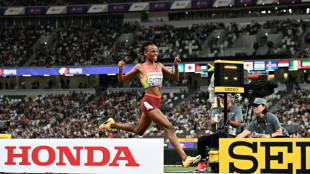
-
 Lyles, Thompson and Tebogo cruise through world 100m heats
Lyles, Thompson and Tebogo cruise through world 100m heats
-
Vuelta final stage shortened amid protest fears
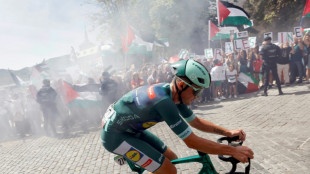
-
 Collignon stuns De Minaur as Belgium take Davis Cup lead over Australia
Collignon stuns De Minaur as Belgium take Davis Cup lead over Australia
-
Nepal returns to calm as first woman PM takes charge, visits wounded
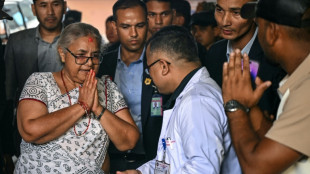
-
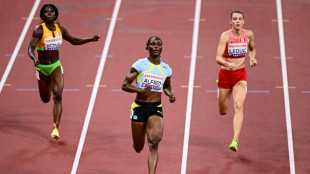 Olympic champion Alfred eases through 100m heats at Tokyo worlds
Olympic champion Alfred eases through 100m heats at Tokyo worlds
-
Winning coach Erasmus 'emotional' at death of former Springboks
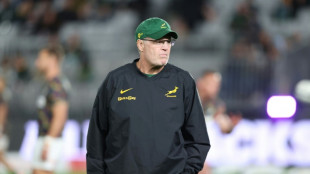
-
 Barca's Flick blasts Spain over Yamal injury issue
Barca's Flick blasts Spain over Yamal injury issue
-
Rampant Springboks inflict record 43-10 defeat to humble All Blacks
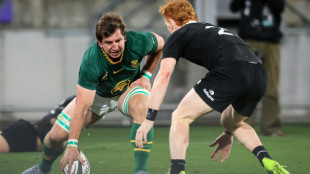
-
 Italy's Bezzecchi claims San Marino MotoGP pole as Marquez brothers denied
Italy's Bezzecchi claims San Marino MotoGP pole as Marquez brothers denied
-
Rampant South Africa inflict record 43-10 defeat on All Blacks
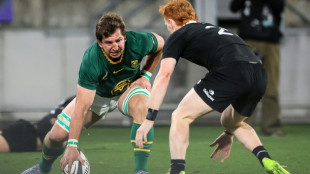
-
 Collignon stuns De Minaur as Belgium take 2-0 Davis Cup lead over Australia
Collignon stuns De Minaur as Belgium take 2-0 Davis Cup lead over Australia
-
Mourning Nepalis hope protest deaths will bring change
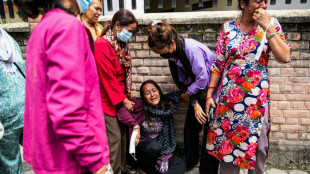
-
 Carreras boots Argentina to nervy 28-26 win over Australia
Carreras boots Argentina to nervy 28-26 win over Australia
-
Nepal returns to calm as first woman PM takes charge
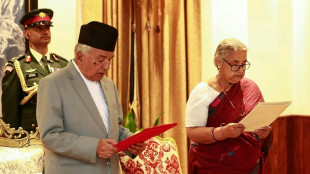
-
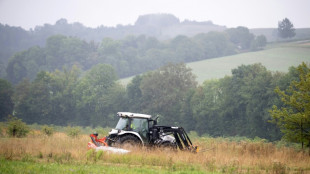 How mowing less lets flowers bloom along Austria's 'Green Belt'
How mowing less lets flowers bloom along Austria's 'Green Belt'
-
Too hot to study, say Italian teachers as school (finally) resumes
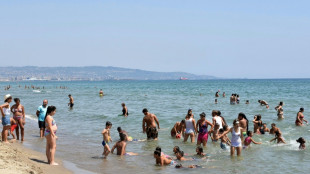
-
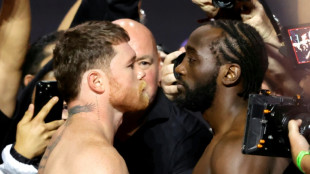 Alvarez, Crawford both scale 167.5 pounds for blockbuster bout
Alvarez, Crawford both scale 167.5 pounds for blockbuster bout
-
Tokyo fans savour athletics worlds four years after Olympic lockout
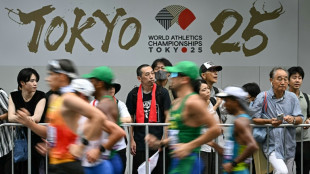
-
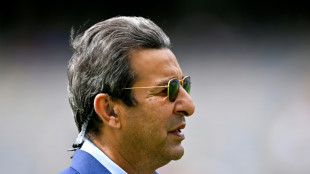 Akram tells Pakistan, India to forget noise and 'enjoy' Asia Cup clash
Akram tells Pakistan, India to forget noise and 'enjoy' Asia Cup clash
-
Kicillof, the Argentine governor on a mission to stop Milei
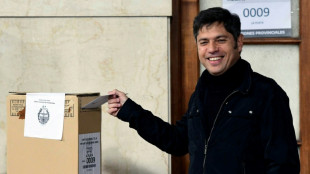
-
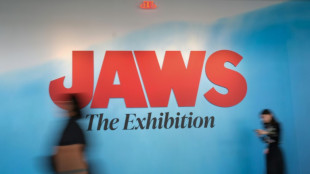 Something to get your teeth into: 'Jaws' exhibit marks 50 years
Something to get your teeth into: 'Jaws' exhibit marks 50 years
-
Germany, France, Argentina, Austria on brink of Davis Cup finals

-
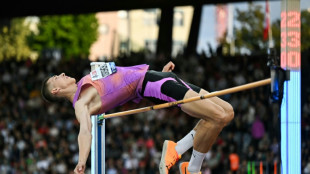 War with Russia weighs heavily on Ukrainian medal hope Doroshchuk
War with Russia weighs heavily on Ukrainian medal hope Doroshchuk
-
Suspect in Charlie Kirk killing caught, widow vows to carry on fight
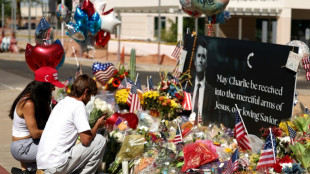
-
 Dunfee and Perez claim opening world golds in Tokyo
Dunfee and Perez claim opening world golds in Tokyo
-
Ben Griffin leads PGA Procore Championship in Ryder Cup tune-up
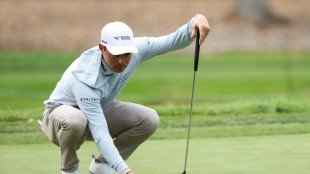
-
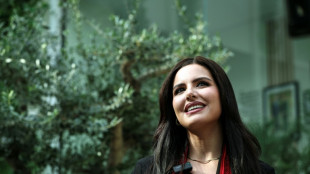 'We're more than our pain': Miss Palestine to compete on global stage
'We're more than our pain': Miss Palestine to compete on global stage
-
Ingebrigtsen seeks elusive 1500m world gold after injury-plagued season
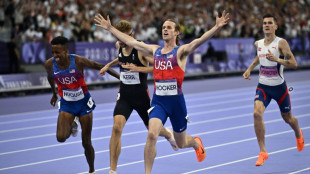
-
 Thailand's Chanettee leads by two at LPGA Queen City event
Thailand's Chanettee leads by two at LPGA Queen City event
-
Dolphins' Hill says focus is on football amid domestic violence allegations

-
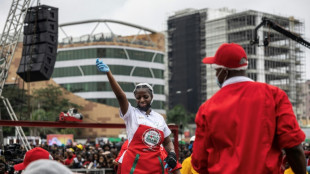 Nigerian chef aims for rice hotpot record
Nigerian chef aims for rice hotpot record
-
What next for Brazil after Bolsonaro's conviction?
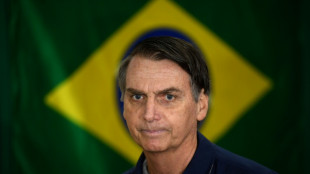
-
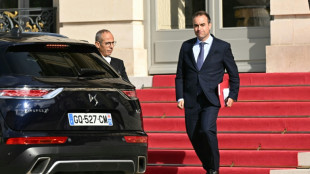 Fitch downgrades France's credit rating in new debt battle blow
Fitch downgrades France's credit rating in new debt battle blow
-
Fifty reported dead in Gaza as Israel steps up attacks on main city
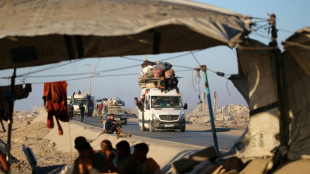
-
 Greenwood among scorers as Marseille cruise to four-goal victory
Greenwood among scorers as Marseille cruise to four-goal victory
-
Rodgers calls out 'cowardly' leak amid Celtic civil war


Israeli firm develops body cams with facial recognition
Twenty years after he planned the controversial barrier between Israel and Palestinians, Dany Tirza is developing a security tool that requires no cement: body cameras with facial recognition technology.
Tirza, a former Israeli army colonel, says his company Yozmot Ltd aims to produce a body-worn camera enabling police to scan crowds and detect suspects in real time, even if their faces are obscured.
Facial recognition in law enforcement has sparked global criticism, with US tech giants backing away from providing the technology to police, citing privacy risks.
Proponents including Tirza, however, tout its ability to track down criminals or missing persons.
"The policeman will know who he is facing," he said.
- 'It's easy' -
Tirza, 63, spoke to AFP from his home in Kfar Adumim, a Jewish settlement in the occupied West Bank.
He said he partnered with Tel Aviv-based Corsight AI to develop a body-worn police camera that could instantly identify people in a crowd, even if they wear masks, make-up or camouflage, and could match them to photographs dating back decades.
Corsight CEO Rob Watts did not confirm the collaboration but said his company was working with some 230 "integrators" worldwide who incorporated facial recognition software into cameras.
The technology allows clients to build databases, whether of company employees allowed into a building, ticket holders permitted into a stadium, or suspects wanted by the police, Watts said.
He said Australian and British police were already piloting the technology.
The facial recognition industry was worth about $3.7 billion in 2020, according to market research firm Mordor Intelligence, which projected growth to $11.6 billion by 2026.
Facebook, Microsoft, Amazon and IBM have all declared temporary or permanent freezes on selling facial recognition programmes to law enforcement.
France last month ordered the US-based Clearview AI to delete data on its citizens, saying the company violated privacy when it built a facial recognition database using images "scraped" from the internet.
Watts called Clearview's actions "abhorrent" and said Corsight AI did not sell to China, Russia or Myanmar because of "human rights and ethics".
"What we want to do is promote facial recognition as a force for good," he said.
He said Corsight had hired Tony Porter, the United Kingdom's former surveillance camera commissioner, as chief privacy officer, and that the software would blur or delete faces deemed not of interest within seconds.
Corsight AI was valued at about $55 million in a recent funding round, Watts said, estimating this would grow to $250 million by year's end and noting the technology's potential.
"Why do I need a credit card? I don't, I've got a face," he said. "The consumer will very, very quickly and readily adopt facial recognition because it's easy."
- Controversial history -
Surveillance technology developed in Israel has a chequered history.
The NSO Group, founded by Israeli military intelligence veterans, makes the Pegasus software that can spy on mobile phones.
US authorities blacklisted NSO in November, and Facebook and Apple have sued the company after the spyware was discovered on devices belonging to dissidents and journalists.
NSO says Pegasus meets the Israeli defence ministry's export rules.
Israeli facial recognition software, too, has encountered criticism.
In November, former Israeli soldiers revealed they had photographed thousands of Palestinians to build a database for a sweeping facial recognition surveillance programme in the West Bank city of Hebron.
In 2020, Microsoft divested from Israeli facial recognition firm AnyVision, now renamed Oosto, over the company's alleged involvement in surveilling Palestinians.
Oosto works with law enforcement agencies and private companies worldwide, and its software is used at checkpoints where Palestinian labourers cross into Israel.
Corsight CEO Watts said his company has "a number of contracts in Israel -- governmental contracts and agencies", but declined to elaborate, citing non-disclosure agreements.
- 'Control' -
Palestinian digital rights activist Nadim Nashif said the use of facial recognition technology entrenched Israel's "control" over Palestinians and added to a "domination" of physical spaces.
But Tirza praised its use at checkpoints, saying the main aim was to reduce "friction" between soldiers and residents.
Tirza was a colonel in the Israeli military in 2002 when he was tasked with designing a barrier in response to attacks during the second Palestinian intifada, or uprising.
Part towering concrete slabs, part fence, it now snakes for more than 500 kilometres (310 miles) along the Israel-West Bank border.
Palestinians say the barrier's construction grabbed nearly 10 percent of the West Bank, and the International Court of Justice ruled it illegal.
But Tirza said it also reshaped the conflict.
Until it was built, "a lot of people thought you cannot separate" Israelis and Palestinians, he said.
Tirza said he expected to have the body camera finished within a year, and hopes to market it to US and Mexican law enforcement -- though he acknowledged some reluctance.
"They were very interested, but everyone says we have to check the laws" to see whether it goes too far, he said.
"But I believe it is not too far."
M.Furrer--BTB

